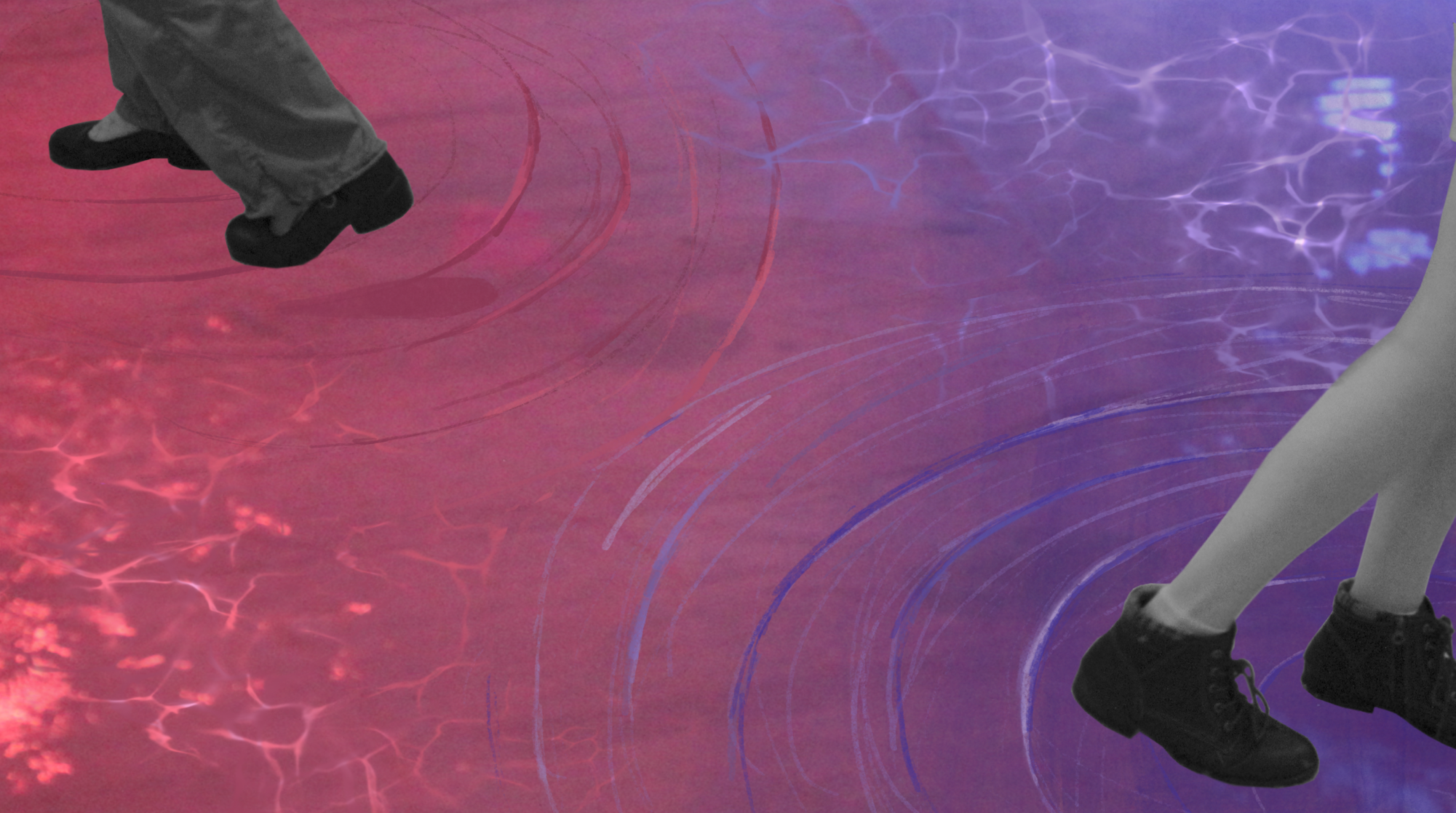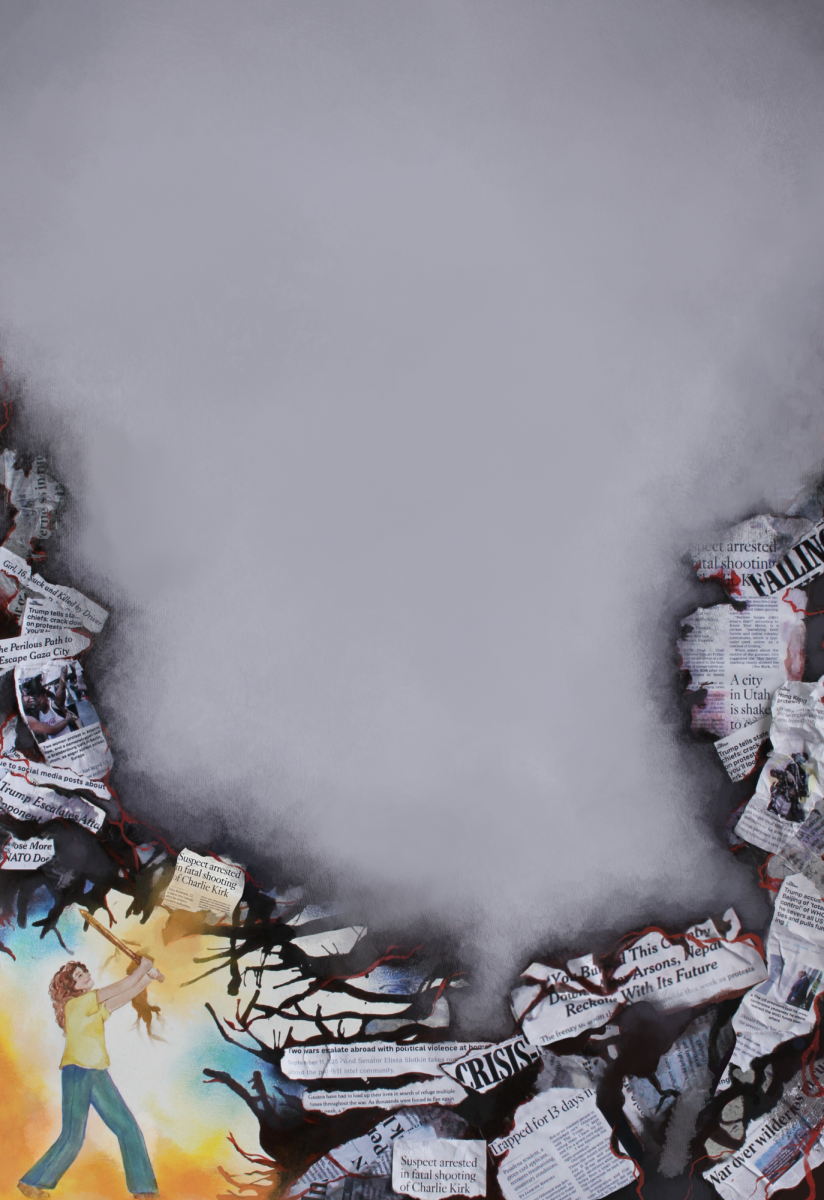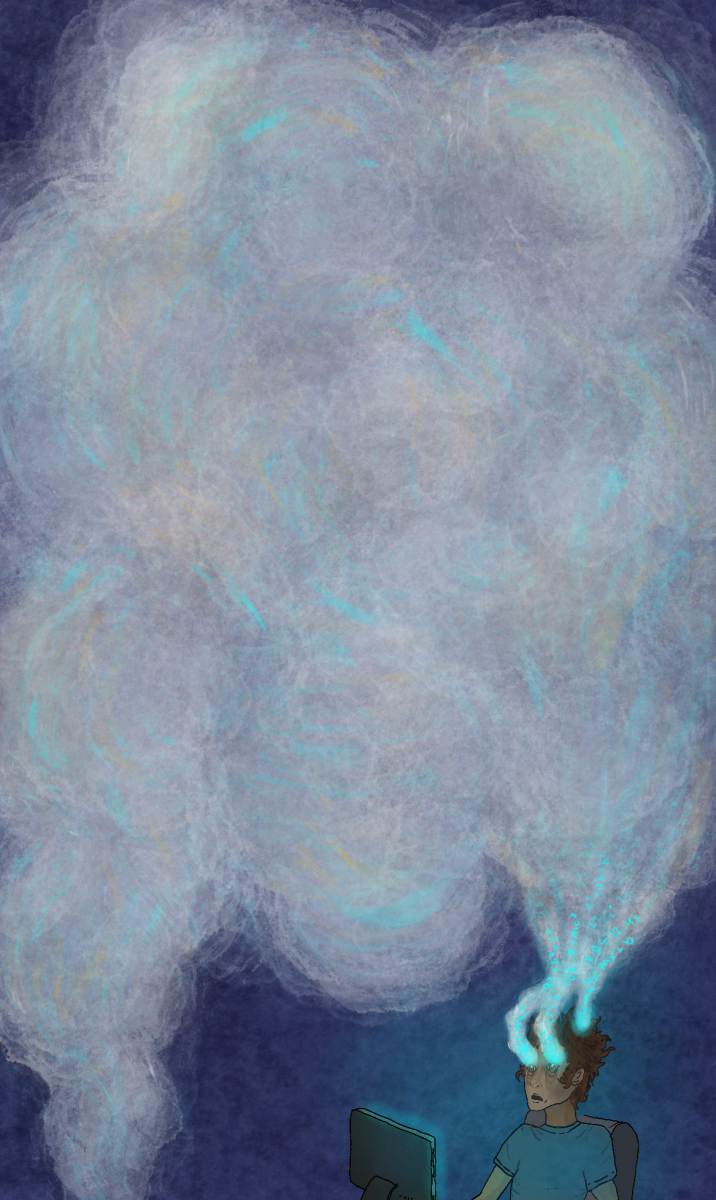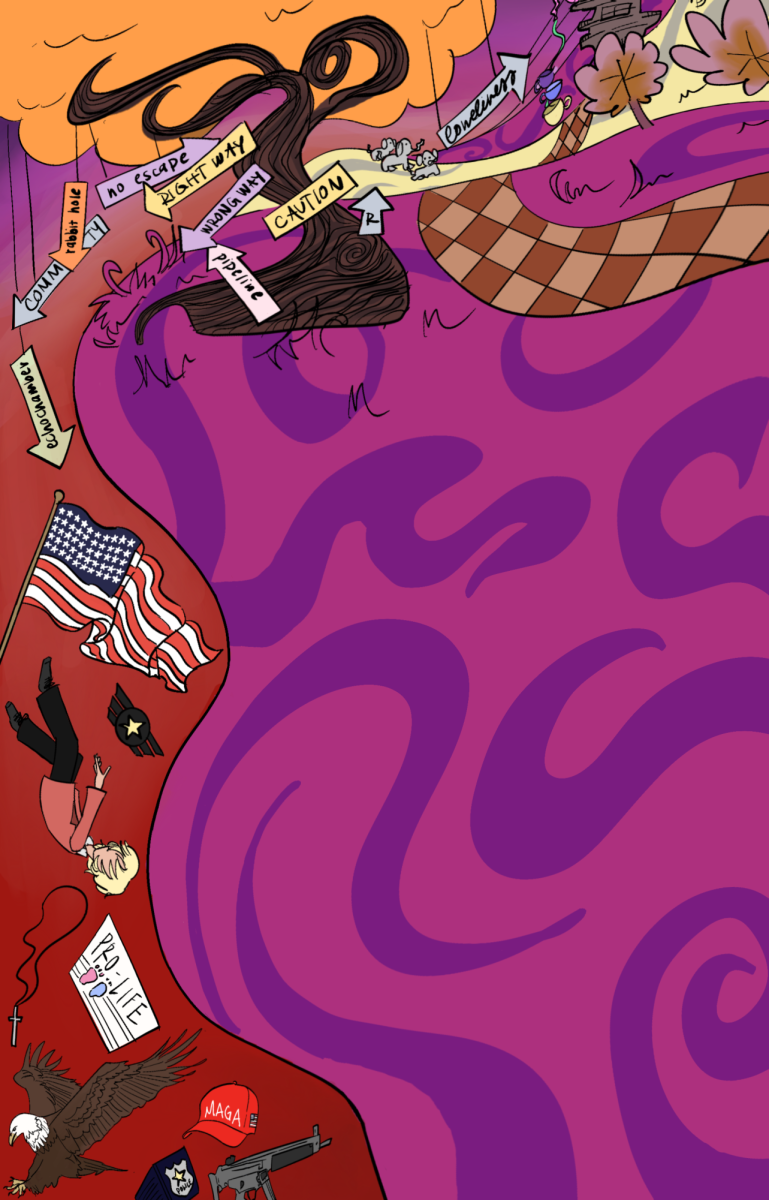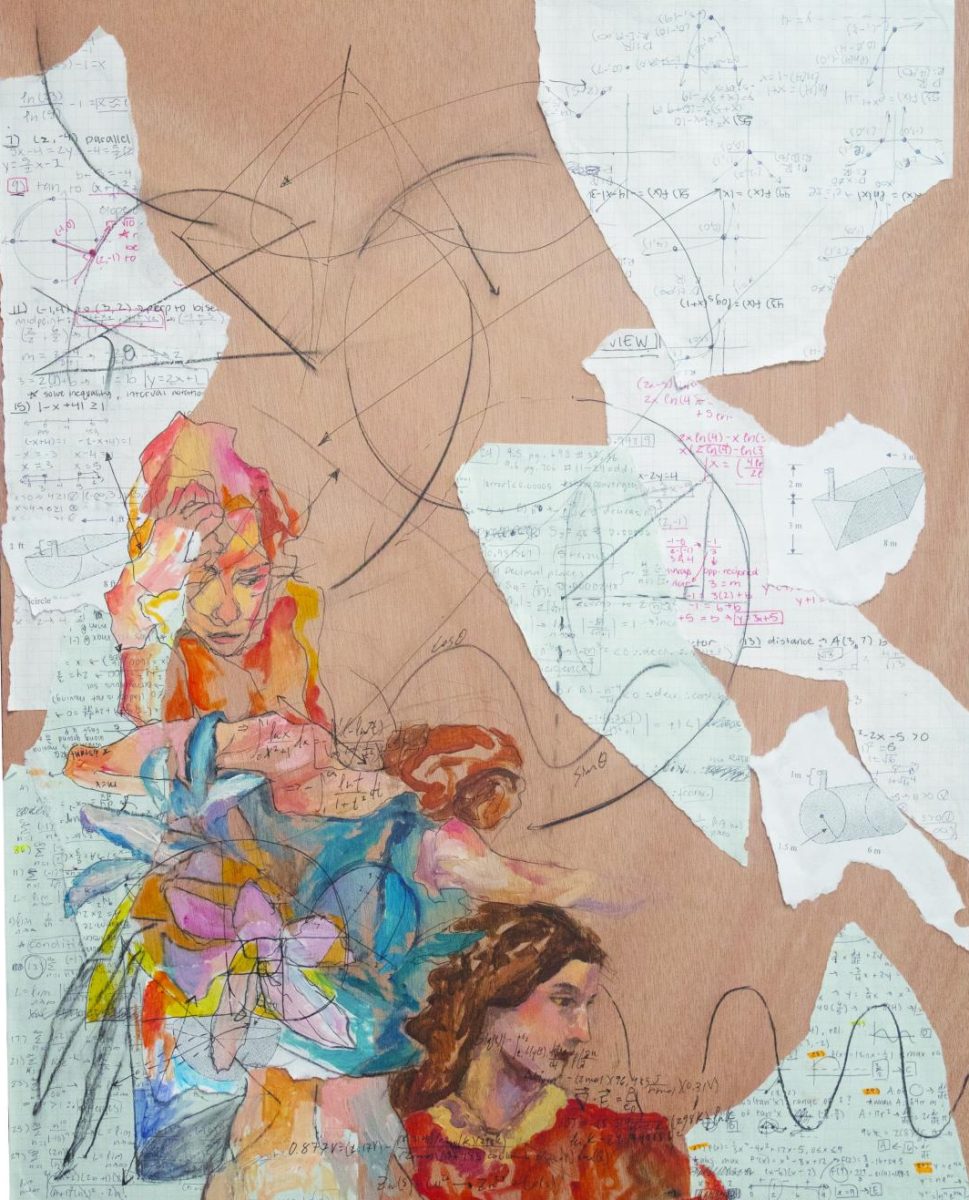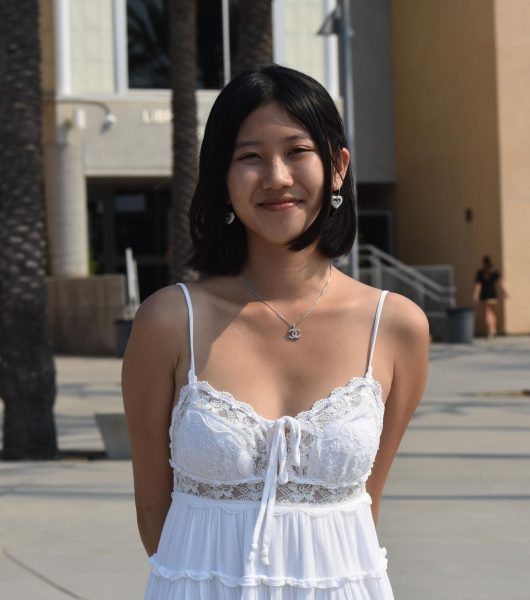Amidst one of the most intense, devastating conflicts in U.S. history, just before the Confederates seceded from the Union, subsequently splitting apart the young nation, Abraham Lincoln, in 1858, uttered the words: “A house divided against itself, cannot stand.”
In modern day America, though the country is still united physically, Jenna Knott (12) knows this aphorism all too well. She wonders about the role political polarization will play in determining just how long it continues to stand.
Political polarization, or the divergence of political attitudes towards the extremes, has been at an all-time high in America. In a study done by the Pew Research Center, the average ideology of Congress members, which is largely representative of the U.S. as a whole, has never been further apart; Republicans have gone further right and Democrats further left.
“Everything is so polarized now that no one wants to listen to each other anymore,” Knott said. “As someone who is going to be voting in the near future, it’s sad to watch because we keep arguing against each other, not really solving any issues or working on any problems. It’s just people fighting to fight.”
According to Dr. Jonathan Graubrat, the chair of political science at San Diego State University, America’s intense divide largely stems from deeply rooted flaws in our political system as a whole.
“Polarization is more of the effect of political dysfunctionality in our system,” Dr. Graubrat said. “Politicians from neither party couldn’t and can’t really meet the fundamental needs of the bulk of the American people, [specifically] the economic challenges that we’ve had for the last several decades of maintaining a decent standard of living for a wide sector of the population. Therefore, when economic conditions are more insecure and general political institutions are inadequate, there’s a higher probability that extremist ideologies are able to emerge.”
The extremes, Dr. Graubrat explained, are only further perpetuated by the current political system. People are only given two choices: Democrat or Republican. Knott said this absence of diversity is something that she has struggled with.
“Though there are other parties, the two-party system is just so dominating that it fails to find a good middle ground,” Knott said. “People are kind of forced to either vote for a Democratic or Republican candidate, because voting for a third-party is seen as a waste, or taking away from the only two parties with the possibility of winning [an election]. The entire country has just been split between two sides, which is nowhere near how nuanced people’s beliefs and stances actually are.”
Dr. Graubrat agrees with this sentiment, describing how voters cannot truly express themselves through these national elections.
“[The two-party system] is very ineffective,” Dr. Graubrat said. “It’s not truly representative of the wide spectrum of opinions that Americans hold and it makes it hard to really get excited about voting if the most excitement is picking the person that you hate less.”
Being forced to pick between red and blue and maintaining more moderate viewpoints has become incredibly difficult for Evan Russo (11), Knott, and many Americans. For Russo, politics are such a representation of his personal beliefs and it’s hard for him to be completely objective about such things.
“The idea of separating people from politics, in theory, could be possible,” Russo said. “I don’t see it necessarily being something that happens, especially because of the time we’re in now because I think for so many people, including me, politics is very important. So, I think it’s very hard to separate that from what your identity is because your core beliefs are what shapes your political viewpoints in a way.”
Russo classifies himself as more moderate, but has found the divisive political climate pushing him more towards conservative policies and candidates; simply, there’s no other option. Knott, who identifies on the opposite side of the spectrum, relates to this.
“I’m definitely more on the liberal side of things as far as my political beliefs go,” Knott said. “But, there are certain parts of a more conservative rhetoric that I wouldn’t be opposed to agreeing with or at the very least, listening to more of, [like] their theories about the economy. I have family and many people in my life as well who vote Republican, not because they necessarily believe in everything the party stands for and have negative views on abortion or transgender rights, but because they just vote along party lines.”
Dr. Graubrat said politicians also play into polarizing the parties further apart, as a large part of their campaign is fueled by economic incentives.
“A bigger problem, that [displays] the dysfunctionality of our political elections, is just how important it is to raise big money for either political party,” he said. “[This motive] plays up political foibles and fights between candidates as big news and sensationalizes distinct ideologies from each party. This attention on the [dramatic] takes the public away from more substantive, important ideas, and makes [people] view things in extreme lenses. Politicians are really just serving their funders.”
The media, which emphasizes these eye-catching, intense rivalries, has also contributed to a more intense divide. Aiken Wang (’23), a political science major at Yale University, described how this has contributed to misleading information and at times, even just misinformation.
“If you post boring, truthful content, that’s not a great way to get views,” Wang said. “But, if you have more controversial or more extreme viewpoints, you’ll get more attention, more venues, and more viewership. Media, therefore, prioritizes more this inflammatory content. And, sometimes, there is some truth to it, but you kind of get these cherry-picked facts, that don’t tell the full story, and only cover in-depth, specific inflammatory details that can blow issues out of proportion. And, once you combine that with misinformation, it becomes an even bigger issue.”
Knott said that bias in political news sources has also made it infinitely harder to find accurate information.
“These news stations play a big part in misleading the public,” Knott said. “CNN versus Fox News, for example, have these different perceptions on issues and they spin them in different ways. That’s so dangerous because if you just look at Fox News, the Democrats are running like an evil pedophile ring in a Pizza Hut. But if you look at CNN, all Republicans are evil and want to kill gay people. Both perceptions are wrong. And, this can happen with real-life events too. People are focusing on the wrong things and [operating] on a different set of facts.”
Julia Smith (12), for one, has seen many platforms manipulate the truth to deceive viewers. She, as well, has seen its algorithms weaponize people’s interests.
“Ideally, you’d think that the media is awesome in the sense that never before have we been able to be exposed to so many diverse and different opinions, groups, voices, [and] ideas, which is absolutely true,” Smith said. “But, I think algorithms on social media and just the media in general have been doing the exact opposite. They’ve been showing you the same content over and over again; there’s less diversity and more of you and only you. Like, if you interact with a Republican TikToker for example, you kind of begin to get over and over again the same Republican and conservative feed. It’s so easy to do that and I’ve personally fallen down that hole, limiting myself to a specific niche. It’s essentially closing and specifying your world view, pulling you towards [an extreme]. People see what they want to see. We’re very tribal in that sense, so they keep going down the paths that affirm their views.”
Wang said in navigating the modern media, he’s learned to cross- reference sources and has developed an instinct for exaggeration.
“It’s important to [do] basic fact checking [and] see if the source is credible,” Wang said. “See if the numbers they are saying are accurate, dive into events, [and] try to verify what happened. For example, I was looking at a Fox News article that claimed that there was a big outbreak of illegal immigration in a town in Alabama.I did some fact checking and apparently there are like 50 immigrants, all of them were legal in a population of 12,000. This was actually later confirmed by Alabama’s own attorney general. I don’t expect someone to double check every fact in every article you see, but you really need to try and develop a basic sense and intuition of what’s likely to be true and what’s likely to be not true.”
Dr. Graubrat said that the dramatism of the media villainizes each side, playing a prominent part in the lack of civility in political discussion. An example of this, for Knott, was the 2024 presidential debate.
“During the presidential debate, former President [Donald] Trump was being entirely [non-responsive] and choosing to attack Vice President [Kamala] Harris on a personal level, rather than attacking her plans or even building up his own policies,” Knott said. “But, neither of them overall, were really listening to each other, debating each other, or responding to each other’s policies. It was more just trying to bring the other person down in order to best support their political beliefs.”
This is particularly concerning to Smith, as she believes national figures are supposed to model behavior for the public.
“Politicians should be role models on how we view and how we interact with politics on a local level and also on a student-to-student basis,” Smith said. “But, instead, [we see] politicians being so negative to each other and in regards to active discussion. Seeing them constantly in the public eye acting these ways, [these figures] normalize this type of immature, defensive, and generally very argumentative behavior that do not promote what debates are supposed to be for; they aren’t solely for pointing each other’s flaws, but instead embracing both sides and considering differences in a positive light.”
Russo said the most important part of these debates is for people to learn to understand each other.
“We need to have discussions, but they need to be civil discussions,” Russo said. “The second we get to insulting each other, we lose direction. We need real conversations about solutions, change, and things that are going to help people. On an individual level, if you’re talking with somebody that’s on the opposing side of the aisle, I don’t think we should view these other people as lesser than ourselves or as different or make them out to be an enemy in any way because we can still have civil discussions that help us come to a unified conclusion.”
Being open- minded to conversation, Russo said, is something that he really appreciates in debates.
“Like [my father and I], we lie on different sides of the aisle, but I love the ability that I’m able to talk with him about politics and how we can settle for a middle ground. Some people feel very passionately about their side, and you cannot fault someone for being passionate, but you always have to give people a chance. Most people view those on the opposing side as being extremes when I don’t think many really are. I think if we really talk to each other more, we’d understand that.”
Russo said a good example of this was in the vice presidential debate.
“I thought the vice presidential debate was kind of a stepping stone towards a more civil future,” he said. “They talked more about policies and it was very respectful. There was a specific example where Waltz brought up something horrible that happened to him and Vance empathized with him, which I thought was very different from what I think would happen in the presidential debate. It’s kind of sad to think that it’s not common to empathize with each other anymore.”
Russo is right; in fact, according to a meta-analysis, combining over 72 studies, done by the University of Michigan in 2009, social psychologist and researcher Sara Konrath found that college students were 40 percent less empathetic in the modern day than their counterparts 20 to 30 years ago. In an interview with the American Psychological Association in 2019, Konrath said that empathy is still extremely lacking.
For Knott, amongst all these bleak factors, it’s been difficult to stay encouraged and engaged throughout the current political turmoil plaguing the U.S.
“I know it’s only going to get worse from here, especially after the election, no matter who wins,” Knott said. “It’s really depressing when you think about it, because it feels like there’s always another scandal coming out or another really aggressive argument being [aired]. It’s just so overwhelming. I know a lot of young people feel apathetic towards politics because of this and don’t want to participate in it. ”
Though it’s demoralizing, Dr. Graubrat advocates for students to continue to try and engage civically and politically. This is the pathway to change, he said.
“Our democracy is endangered,” Dr. Graubrat said. “And, if we’re going to save democracy, we are going to need political activism, mobilization, [and] engagement. There’s this famous, old saying from Antonio Gramsci, an Italian Marxist who was rotting away in a fascist prison under Mussolini in the 1930s: ‘Pessimism of the intellect, optimism of the will.’ Back then, it certainly looked more depressing than it is now. So, yes, intellectually, it looks really bad and I’m a pessimist in terms of calculating the prospects of the country’s dysfunctionality. But, the optimism I take, the genuine optimism that fuels me, is the hunger among the younger generations for change and growth. We need to do what we can to create a future of unity.”
Russo said he also shares this innate hope for the country.
“With everything going on, it doesn’t seem like this election season, or U.S. politics is going to turn out great,” Russo said. “But, some part of me thinks that maybe it won’t be so bad. I think if you look throughout history, there are so many times where people have thought, ‘This is the worst it’s ever been and how are we ever going to get through this,’ but, in the end, they eventually overcame it. I think we’ll phase out these current waves of politicians and get back to being more moderate and respectful of one another.”
Above all else, Smith said she believes that unity can be achieved through active discussion with all kinds of perspectives, beliefs and people.
“The type of civic engagement that we want is achieved through diversity and inclusion,” Smith said. “We need to be able to talk with one another, listen to one another, exchange ideas with one another, understand one another, and grow together. When we begin to look at conversation as scary, we lose hope. Discussion and being open is how we move forward as a society and create a better future, rather than retracting into the past. There is no going backwards, only moving forwards.”


